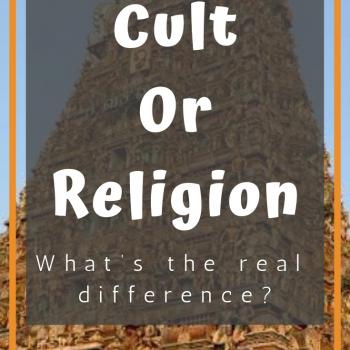I think my theme this week is honesty. Deep, confusing, contradictory truth. I am going to tell you about the group that I grew up in today.
I find that I am at a loss as to what to say. My experiences and thoughts are confused and deeply ingrained. There are things that I did not appreciate about the time I spent here, but I’m not sure it’s any worse than any other organized religion.
Background
The story goes that Mr. MacLaren, a man of Scottish heritage living in England, wanted to understand the meaning of life. He started out studying economics and founded a School of Economic Science to further explore how economics is connected to the purpose of life. His direction was radically changed when the Maharishi (I’m sure I’ll do a post on him at some point too) came through England in the 60s. Mr. MacLaren went and learned about Hindu philosophy and Transendental Meditation from him. He then traveled to India to get back to the source and began a long communication with His Holiness Sri Shantanada Saraswati, a Chankaracharya.
If you’ve ever hear of Ouspensky and Gurdjieff, apparently Mr. MacLaren had some kind of connection to them. I’m told they disagreed about the importance of meditation and parted ways.
Mr. MacLaren would refer to TM (transendental meditation) as “the key.” He considered it the most important practice for the attainment of enlightenment.
His schools began to teach classes in Advaitan philosophy as filtered through Mr. MacLaren’s intellectual understanding. The students are read material (usually written by Mr. MacLaren and featuring his questions to the Chankaracharya and the responses) and then they discuss. The students are given practices to try out. Eventually they are initiated into meditation and every class begins with meditation.
They started having retreats where practicing The Teaching was all one had to do all day every day. Meditation, work parties (the importance of being in the present moment and connecting you attention with your psychical work was emphasized), classes in Sanskrit, calligraphy, and philosophy.
Teaching
The school developed into an odd Indian/Western hybrid. The teachings and philosophy were straight from Advaita Vedanta, but none of the culture was. Though we chanted Sanskrit prayers, had a Sanskrit mantra, and were told that Sanskrit’s grammar held the secrets to the fine laws of creation, there was nothing very Indian about the school.
The premise was that Truth is one. There are many ways to get to Truth and all the respected world religions were ways of accessing the one Truth. Some in more obscure ways than others. We were led to believe that we had the most direct path to Truth. But it was philosophy, not religion. We were told to stay with the religion of our birth and reinterpret it to see the Truth hiding within. The way that my parents understand Christianity (and they do still consider themselves Christians) is unlike interpretations that any church I know would give.
The Culture
There was (and I assume still is) a very strict hierarchy. Showing respect and deference to those above you in the chain was extremely important. What Mr. MacLaren said was Truth and if you didn’t understand it, you could work on that. You could question him (well, actually, it was usually the “senior students” questioning him the questions you had asked them), but it had to be done in a respectful way.
There was a strong Victorian feel about it. You must have proper decorum. Men spend their days discussing the details of philosophy (women were more often discovering Truth by serving their men). Men wore suits to class. Women wore ankle-length skirts. Men and women sat on separate sides of the room and once they got high enough in the school, had gender separated classes (for fear that the soft-spoken women folk would be intimidated by the men and not speak up and ask questions in their presence). Men were taught that women are delicate creatures to be adored and protected. Women were taught that love comes from service and her duty is to love her husband and her children.
To be selfish was the greatest of sins. Because we are all One, serving and loving another is a way to care for the Self. The uppercase Self was God, but the lowercase self, the ego, the ahenkara (the belief that I am ______ rather than simply I am) was to be denied at every turn. We pushed ourselves hard trying to be the ideal of selfless love.
As I said earlier, despite the origins in Hinduism and India, there was no sign of it in the schools. We were English in just about every way.
My Experience
Most people join the school because they see an ad on the subway or in the newspaper and they are curious to find out what more there might be to life. I, on the other hand, never knew any other way. (If you look at the school’s webpages, I think they tend to obscure the Indian nature of the teaching they are offering. Yes they also use examples of Plato and the Bible, but it is most heavily Hindu).
My father joined in the 1970s and my mother shortly after they were married. They have remained dedicated students of Truth and they meditate without fail twice a day. (However, they did follow a splinter group in the early 2000s, and I’ll get to that later).
By the time I was born, they had been in Philosophy School (as it is known in the States; SES or School of Economic Science is what it is called in England) for five years. When I was growing up we went to a Unitarian church on Sundays and “silosophy school” (as I called it) on Saturday mornings. My parents went to Philosophy classes a couple nights a week, once to be taught and once to be the teacher (“tutor”). A few times a year they went on retreats for weekends and in the summer they went for a week (each on a different week, as they were somewhat gender divided and there was a “ladies” week). My parents meditated every morning and dawn and every evening around dusk. I hated that they wouldn’t tell me what the mantra was! It was a secret and I have a tremendous curiosity.
Everything was great for me until I became a teenager. Once I started going on the retreats, indoctrination of how to be a proper woman began. The young ladies were being given wife training and we were encouraged to take on a very arranged marriage mindset, that love was a fickle and foolish emotion and that real love comes from devotion and service.
I could go on and on for years telling you stories about how I was trained to be a quiet and subservient woman. My parents had no part in that.
No one expected how seriously I would take it. I’ve been extremely religious from the time I was a small child. I was told that the purpose of life was to attain enlightenment and so I threw myself into that task, trying with every bit of effort I had in me to be the perfect philosophy student and the perfect woman. I kept failing and the criticism was rough (again, the tutors were nearly all British. Praise was not part of life in SES). I took it more seriously than I think the other kids growing up in the school around me did. They seemed to have more of a connection with the real world than I did (at least the ones in Boston). I loved my long skirts. I loved the feeling that I had something better than the modern world. I didn’t recognize that ego for what it was at the time.
To try to capture my experience, I did write a short story that I’ve told you guys about before. I tried really hard to capture the weird shadow feeling that I have now that I live as a normal person in the real world but am haunted by my very unusual experiences in my childhood. It’s very strange to me that I once stood out and looked different (with my ankle length skirts) but now people wouldn’t know by looking at me that I grew up in this organization that some have called a cult.
Mr. MacLaren died in the 90s, as did his guru in India. The school continued being run by Mr. Lambie and Mr. Lambie began visiting Sri Shantanada Saraswati’s successor.
Criticisms
A book came out at some point claiming that SES was becoming a cult of personality around Mr. MacLaren. The School worked to correct that, but I’m not sure if they really succeeded. It’s hard not to hero worship, it seems to be in many people’s human nature. There were also accusations that the School had inappropriate ties to British politics. The book is called Secret Cult and I have not read it.
The day school in London (a grammar school for children based on SES’s teachings) suffered accusations of physical abuse. I’m not surprised, since denial of the body and “selfish” wants is so emphasized and the ideals, as I said before, were quite Victorian. They attempted to correct that as well. One of the children who went to the day school wrote a fictional account (that doesn’t feel very fictional to me at all!) called Shame On You.
In the mid-2000s the Boston school split in half. The leader, from what I understand, became fed up with the strict hierarchy and hero worship and he created a splinter group now called the Advaita Meditation Center. My parents followed him and in fact, it was with him that we all visited the new guru in India. From what I understand, AMC is more transparent and more equal. I have not participated since the split happened well after I left Boston. Some of the Boston students stayed with the SES-affiliated school. I haven’t had much contact with them and don’t know how they are faring.
One of the trademarks of a cult is separating one from one’s family, teaching you to think you are superior to others, and shunning members who leave. I don’t think SES intentionally has these things, but I think it does by mistake. We are taught to think that we have the best possible system for living. We have the system that has the right answers, the real answers. I mean, of course we believe that. You wouldn’t join an organization that you didn’t think had the right idea! But that led to pitying people who left (“They just aren’t strong enough” or “Their ego is still too strong.”) We didn’t purposefully shun people, but we did feel sorry for anyone who wasn’t SES, so it kind of amounted to the same thing.
I remember Mr. Lambie telling us that censorship is a good thing. He believes it is important to protect people from “bad” influences. I definitely disagree. People need to be able to see and experience everything and be trusted to come to their own conclusions. At least, that’s my American take on it! I think his pro-censorship stance comes from a good place, but it is leading to suppression, fear, and controlling behavior.
More From Me
I feel enormously conflicted about my relationship with SES. There’s a LOT that I’m grateful to them for. They started me on the road towards Hinduism and Hinduism has been the best possible spiritual path for my life. I like that I was raised with certain Eastern ideas so they are very ingrained in me and I didn’t have to retrain Western thought to understand Hinduism.
From a young age I was given the tools to see the grandness of life and the hugeness of its scale. I was taught to see beyond the every day details to the greatest quest of human kind. I was given meditation and other practices that have allowed me to focus and find the joy in “boring” tasks most of the time. I was given the tools to be able to step back and observe my emotions without having to believe that they are real or have to be acted on.
I’m really glad for all of that.
I’m hurt by other aspects of my experience. I’m hurt that I was not respected because I was too low in the hierarchy. I’m hurt that I was taught to be a quiet and subservient woman. I was hurt that we were so firmly taught that pleasure was evil and selfish. I’ve had to over come a lot of guilt for any good feelings I have or any good things that I have in my life. (This manifested, for example, in my hair. I felt guilty that I loved my hair so much and so I kept it short–well, short by my standards–because of guilt. Finally a few years ago I let myself grow it to the length that makes me happy and I’m amazed the joy it brings me to wear my hair how I like it).
I don’t understand why we kept such a strict schedule of deprivation, such as eating no cooked food except cold whole wheat bread (breakfast was forbidden unless you were a child or pregnant) and four hours of sleep a night. I heard a rumor that the SES diet was based on a book that was debunked shortly after it came out, but our diet did not change!
I feel that there were contradictions in what we were taught. While they say that discussion and questions are good, it seemed like only certain kinds of questions were acceptable. Questioning the chain of command? Not okay at all.
Believing that we are all the Self at our core turned into trying to erase individuality and personality, while I have come to believe that our differences are to be celebrated as the beautiful diversity of the Self.
Mr. MacLaren used to say that rituals and traditions should only be kept as long as we remember and understand the reasons behind them. When we forget then they become stale and the rigidity that is the bane of organized religion sets in. SES is beginning to have that rigidity. There are rituals and practices emerging that we do because it is done.
I met him when I was seven. As he died shortly afterwards, many new members would coo to me about how lucky I had been to be in the presence of the great man. They chose that life. I never had. They thought I was lucky because I would never have to make the mistakes they had made, I started at such an advantage. I didn’t experience much of Mr. MacLaren but I’ve heard he was extremely harsh and to the point. Doesn’t surprise me at all from the material of his that I’ve read. He didn’t believe in being gentle with people.
In the end I think the only real problem with SES is ego. It’s a bit ironic that the teaching has so much to do with knocking ego down and getting it out of the way. That’s pretty hard to do once you get into a position of power and have lower down students serving you and hanging on your every word. The lower students hero worshiping the senior students and tutors makes the higher people get swelled heads and forget that all our experiences are valid and worth hearing. All of them.
I didn’t feel like my voice was valued and if we are all equally God, it should have been.
Learn More:
- School of Economic Science website
- Wikipedia
- SES responds to criticism
- AndyPrkye.com (He included a link to an old journal entry that I wrote without asking my permission. I didn’t feel comfortable with it being used as criticism at the time and so I removed it.)
- SES Forums
- Cult Education
- Dialogue Ireland
- The Daily Mail: the cult that stole my childhood (The inflammatory language is a bit much, but I have to admit, her descriptions sound pretty darn familiar! This is a very accurate depiction of my experience as well. Luckily my parents were not quite as rigid as the tutors probably wanted them to be. For example, we only followed the SES diet on retreat)
- SkepticTank.org
- The Power Within: Leon MacLaren, A Memoir of His Life and Work
(By the way, little known fact is the actress Emily Watson also grew up in the School. The rumor is that she left when she was told that acting was not a proper profession for a lady).












